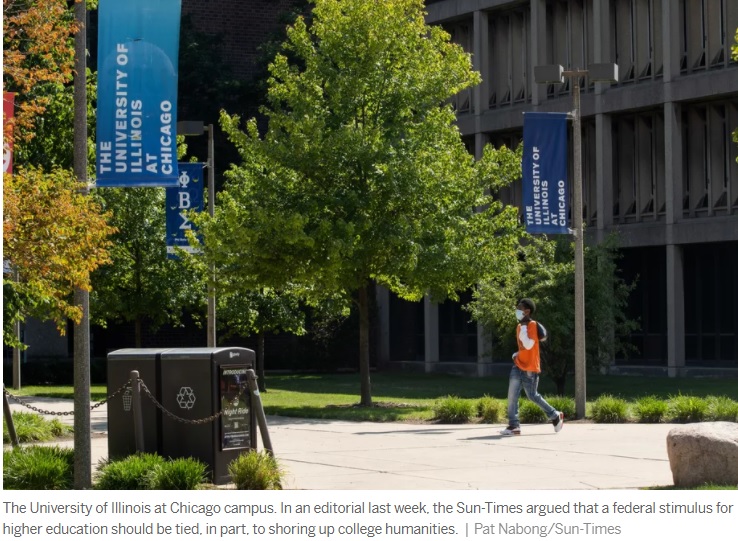We need another Works Project Administration to support more theater, public art, poetry, historic preservation and library collections. And we can do the WPA one better.

I was glad to read the Sun-Times editorial “To revive the humanities, think New Deal,” which called for investment in the humanities as an essential antidote to our country’s divisions of race, culture, and politics — and which hearkened to the Work Progress Administration.
The WPA included investments in the humanities — in theater, public art, poetry, historic preservation and library collections. Many WPA projects, including hundreds in Illinois, were designed to take the humanities outside of classrooms and off college campuses into the public sphere for anyone to enjoy for free.
However, the WPA also was rife with sexism, racism and classism. Contributions by women and people of color came about through efforts of determined individuals who fought against traditional systems to ensure the inclusion of diverse voices and experiences.
As powerful as the New Deal was, we can do better with an agenda that invests in the infrastructure of change through the humanities.
1) Change-making policies are insufficient and less effective without the humanities at the table to ensure approaches that include empathy and diverse voices, and that center the experiences of those most impacted.
2) Infrastructure projects have historically been applied in ways that amplify segregation, disenfranchise vulnerable populations, and upend culturally and historically relevant sites. The humanities provide context. We need to invest in memory, meaning and memorials if we are to fully capitalize on infrastructure in ways that create social, as well as physical, resilience.
3) The humanities are as crucial to the nation’s success as science and technology. They are where the narrative of the American dream can be, and is being, rewritten. We need to galvanize the creative sector — the thousands of individuals and nonprofit cultural organizations that host and employ them — with resources. If we are to reimagine the social contract foundational to our identity as a country in a way that is inclusive, just and socially relevant for current and future generations, we need humanists to light the way.
Illinois is among the top 10 most diverse states. There is tremendous opportunity to invest in infrastructure here in tandem with a Biden administration, while also fostering cultural understanding, respect, equality and justice. If we can lead the way here, there’s a good chance we can help the rest of the country follow.
Gabrielle Lyon, executive director, Illinois Humanities